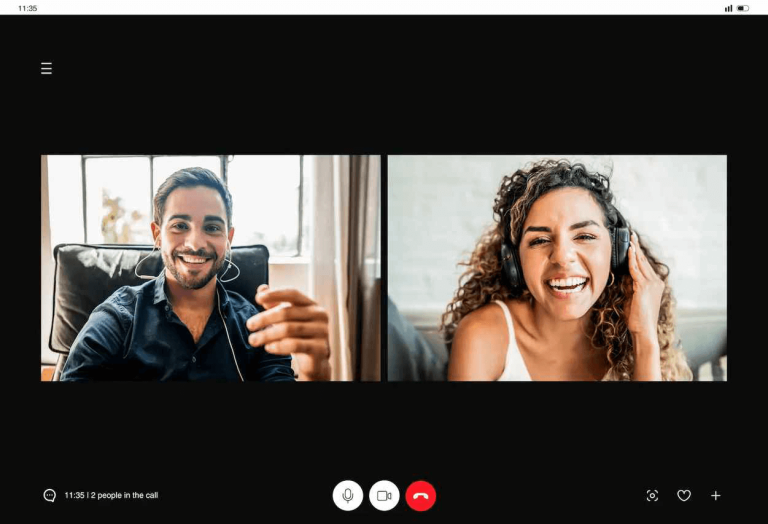Cohort-based programs provide better learning outcomes in difficult-to-teach domains like management and leadership, but are…
How a Social Learning Platform Unleashes Organizational Transformation
Key Takeaways
- Social learning platforms transform corporate learning by shifting from isolated training to connected, community‑driven learning experiences.
- Effective implementation depends on engagement, alignment with business goals, and addressing privacy/digital access issues.
- Organizations can leverage such platforms to scale skill development, democratize access, and create personalized, adaptive learning at work.s and allowed for global peer networks and flexible, applied learning.
In this era of rapid technological advancement, social learning platforms have emerged as powerful tools that are reshaping the landscape of corporate learning and professional development. These platforms leverage the connectivity of the internet to facilitate collaborative and interactive learning experiences, transcending the boundaries of traditional methodologies.
What is a social learning platform and how has it evolved?
A social learning platform is online software that facilitates collaborative learning and interaction among learners across the globe. It enables learners to access learning resources from anywhere, engage with peers and mentors, share knowledge, and participate in discussions and activities.
This concept of social learning is not new; humans have always learned through interaction, observation, and collaboration. However, the integration of technology has given rise to platforms that amplify and maximize these natural learning processes.
The genesis of social learning platforms can be traced back to the early days of online forums and discussion boards. These nascent platforms provided a space for learners to engage in conversations, share ideas, and seek help from peers.
As technology progressed, so did the capabilities of social and collaborative learning platforms. The advent of Web 2.0 ushered in a new era of user-generated content and collaboration. This paved the way for the development of more sophisticated platforms that could support multimedia content (including video), real-time interactions, and more personalized and impactful learning experiences.
How did the rise of MOOCs and online courses advance social learning platforms?
One significant milestone in the evolution of social learning platforms was the emergence of Massive Open Online Courses (MOOCs). MOOCs leveraged social elements such as discussion forums, peer assessments, and collaborative projects to create a sense of community among learners.
The success of MOOCs highlighted the demand for flexible and accessible learning options for professionals at all stages of their development. Learners could now engage with course materials at their own pace, connect with mentors and peers globally, and benefit from a diverse range of perspectives. This shift marked a departure from traditional classroom structures, opening up exciting new possibilities for lifelong learning.
How do social learning platforms power the workplace?
Beyond formal education, scalable social learning platforms have found meaningful applications in the corporate world. Organizations are increasingly recognizing the value of continuous learning to stay competitive in today’s fast-paced business environment. Enterprise social learning platforms provide employees with on-demand access to a wide range of professional development resources.
These platforms incorporate powerful social features such as discussion forums, mentorship programs, and collaborative projects to foster a culture of knowledge sharing within organizations. Employees can learn from each other, share best practices, and stay updated on industry trends. The result is a more agile and adaptive workforce capable of navigating the challenges of the modern business landscape.
A cohort-based, social, and collaborative learning platform enables this effective community team building, even across geographies, elevating and enhancing collaboration between new hires, mentors, and managers. Capabilities can be acquired in a safe environment and in the context of organizational goals and learners’ roles. Onboarding can become everboarding, reinforcing organizational values over time and with intention.
What are the challenges and opportunities of a social learning platform?
Despite the numerous benefits of social learning platforms, challenges do exist. Privacy concerns, digital inequality, and the need for effective moderation to ensure a safe learning environment are issues that need careful consideration. Additionally, the effectiveness of social learning relies on the active participation of users, and maintaining engagement can be a challenge.
However, the opportunities and benefits presented by social learning platforms far outweigh the challenges. The ability to tap into a global audience, the democratization of development, and the potential for personalized, adaptive learning experiences are driving forces behind the continued evolution of social learning platforms.
What is the future of social learning platforms?
Looking ahead, the future of social learning platforms holds exciting possibilities. Artificial Intelligence (AI) and machine learning are being integrated to provide even more personalized and adaptive learning experiences. These technologies further enhance the immersive nature of online education, allowing learners to engage in realistic simulations and hands-on experiences.
Social learning platforms have come a long way from simple online forums to sophisticated ecosystems that facilitate global collaboration and dynamic knowledge sharing. As technology continues to advance, these platforms will play a pivotal role in shaping the future of corporate education and workforce development. The journey from MOOCs to adaptive AI-driven, immersive learning experiences represents a paradigm shift that holds immense promise for learners, educators, and organizations worldwide.
How one leading energy technology company is engaging employees with a social learning platform
In 2021, the global learning team at Baker Hughes, a leading energy technology company with more than 55,000 employees, launched its fully self-directed social community and knowledge-sharing experience, named CORE, focused on the company’s four core values of “Lead,” “Care,” “Grow,” and “Collaborate.”
After operating at first without an existing virtual learning environment, CORE is now powered by NovoEd. The goal was to create immersive learning experiences that could rival the value of the face-to-face experiences that employees were starting to request again post pandemic.
These experiences would also create a continuous learning thread necessary for:
- Rapid skill development at scale
- Alignment with company imperatives
- Centralized data for deeper insights
- Personalization for learners
- Holistically informing strategic plans to sustain a long-term digital learning strategy
- That seemed like a tall order for a learning community that was completely voluntary. But the learning team, operating on a small budget, was innovative and kept building on their initial concept.
Since its start as a small pilot project, Baker Hughes’ CORE membership has swelled to more than 5,000 voluntary members in less than two years. A key component of the success has been the implementation of NovoEd, which allows CORE to deploy a seamless, social, and cohort-based experience that drives learner engagement.
NovoEd also has native and full-feature apps for iOS and Android, which allow CORE members who are frontline workers to participate from the field. Because CORE is intended to be a continual experience and available at the point of need for any employee — and because Baker Hughes has four core values — the team decided to characterize the “program” as a community and focus the activities in the community on one value per quarter.
Each year the content and activities for each value refresh so that those who have been members for a while can continue to learn and grow and new members can begin participating at any time. The CORE community centers engagement activities related to each value and its behaviors across three main categories each quarter: “Learn,” “Engage,” and “Deliver.” These categories were created as a brand new learning framework started within CORE, which is now being adopted across other emerging communities within Baker Hughes.
NovoEd helps leading organizations such as Baker Hughes build their strategic capabilities through a social learning platform and the active exchange of learning around customized content and between humans. Social learning platforms activate this deep and continual skill development needed for enduring behavior change in the context of modern business.


